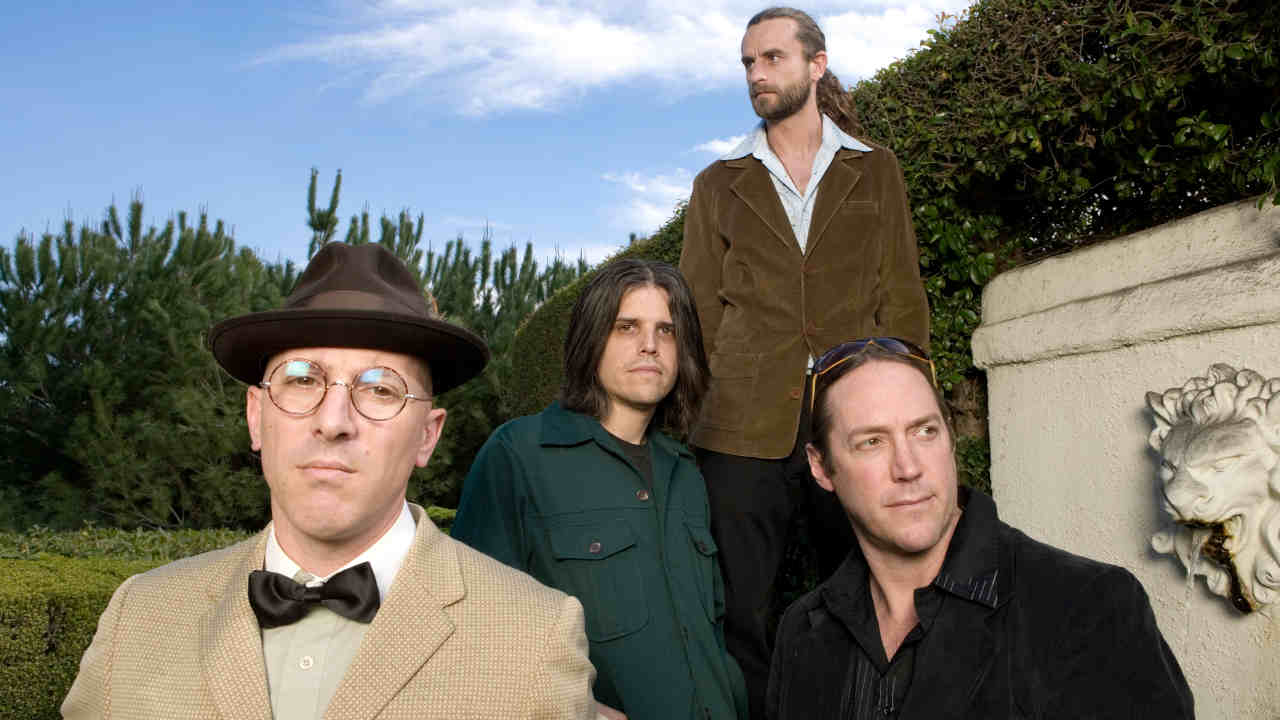“They’ve created a musical realm of their own”: Why the prog world loves Tool
From BTBAM to Iamthemorning, prog musicians tell us what they love about Tool

Select the newsletters you’d like to receive. Then, add your email to sign up.
You are now subscribed
Your newsletter sign-up was successful
Want to add more newsletters?
Marjana Semkina, iamthemorning
“Tool left me quite shaken; I remember listening to the Opiate EP over and over again. When I managed to get hold of the rest of the discography, I could listen to nothing else. It was like magic. Every time someone tried to explain the technicalities of their music, I dismissed it because I loved the mystery of how it’s done. Tool played a very special role in finding my ‘tribe’ to the extent that my heart still quickens if I’m out in a pub and Tool starts playing. I instantly know I’ve come to the right place. When I see someone wearing their merch, I mentally salute them. During those early years, when it’s so important to have friends that share your interests, I didn’t, I was on my own with my love for this band, so I still carry this sentimentality with me.”
William Knox, Lizzard
“It’s hard to say what the music scene would be like today if Tool had never existed. In the mid-90s they found themselves at a crossroads between grunge, prog rock and metal. From there they managed to drag in fans from right across those genres, and that created a massive level-up for the scene as a whole. In that sense they were pioneers simply by being at that crossroads, and then they pushed some boundaries creatively, which helped rock music to keep on evolving and stay relevant. I wouldn’t go so far as to say that Tool created a genre, but for all those bands who get labelled ‘for fans of Tool’, such as Soen, Karnivool, Mastodon and ourselves, Tool helped pave the way. Maybe they gave some people an excuse to take off their blinkers!”
Robin Staps, The Ocean
“I was into 90s hardcore and was never really interested in immersing myself in their music until Lateralus came out, but it wasn’t until I saw them live at Roskilde Festival in 2006 that it really clicked. Me and my ex-girlfriend were spellbound, we listened to Lateralus and 10,000 Days non-stop on our eight-hour drive home. Tool have not only reinvigorated the scene, they’ve created a musical realm of their own. Their approach to intricate and convoluted, yet always groovy and effective, polyrhythmic arrangements is quite unique and the fact that they always seem to strike the right balance between catchiness and complexity without sounding scholastic or unintuitive is pretty exceptional, even more so since they pull all that off as a four-piece live.”
Dan Briggs, BTBAM
“On reflection, I’m sure the idea of using the bass as a melodic voice was aided by what I heard Tool doing. There’s no doubt that the reverbed/wet bass sound on something like Disease Injury Madness [from Between The Buried And Me’s 2009 album, The Great Misdirect] was influenced by Justin Chancellor’s sounds on Lateralus. My favourite thing about them being one of the biggest rock bands is their dynamic sense and their ability to make the listener slow down and really sink into the music. For a listener who didn’t come from a background in progressive music, I think that’s the whole key to unlocking their world; getting lost and just embracing the journey. Plus [opening track on Lateralus] The Grudge just kicks ass!”
James Lascelles, Wheel
“I didn’t know what to make of it when I first heard Lateralus. It gives up its secrets slowly and, on the surface, it’s expertly structured but beneath, there are layers of self-reference, imaginative sound design, lyrical topics that are as ambitious as the compositions, and a unique employment of tension and release. Despite its ambition and complexity, it never loses sight of the meta and, for every intricately structured, mind-jarring groove, there’s always a payoff for those willing to take the journey – the riff that comes in halfway through The Grudge or the explosion after the calm interlude in the middle of Ticks & Leeches are good examples. Lateralus raised the bar for what I thought was musically possible and remains one of the best albums ever made.”
Originally printed in Prog magazine #121
Sign up below to get the latest from Prog, plus exclusive special offers, direct to your inbox!
After starting his writing career covering the unforgiving world of MMA, David moved into music journalism at Rhythm magazine, interviewing legends of the drum kit including Ginger Baker and Neil Peart. A regular contributor to Prog, he’s written for Metal Hammer, The Blues, Country Music Magazine and more. The author of Chasing Dragons: An Introduction To The Martial Arts Film, David shares his thoughts on kung fu movies in essays and videos for 88 Films, Arrow Films, and Eureka Entertainment. He firmly believes Steely Dan’s Reelin’ In The Years is the tuniest tune ever tuned.

